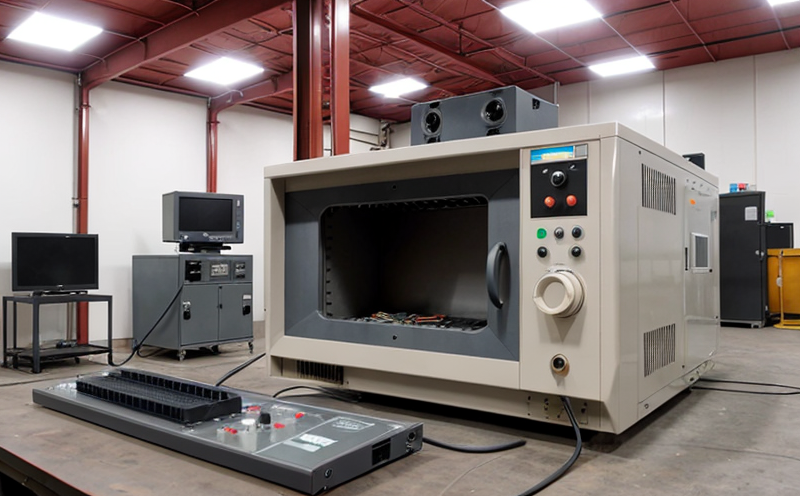IEC 62040 Safety and Performance Testing for Uninterruptible Power Supplies
The IEC (International Electrotechnical Commission) 62040 series is a set of standards designed to ensure the safety, performance, and reliability of uninterruptible power supplies (UPSs). These standards are crucial in industries where uninterrupted electrical supply is paramount, such as healthcare, data centers, telecommunications, and industrial facilities. UPSs play a critical role by providing backup power during brief interruptions or outages, ensuring continuous operation even when the primary power source fails.
The IEC 62040 series includes tests for both static and online UPS systems, addressing various aspects of their design, installation, and performance. The standards cover essential areas such as input/output requirements, overload protection, voltage regulation, frequency stabilization, battery charging efficiency, and the overall reliability under different conditions.
Compliance with these standards ensures that UPS systems are not only safe but also perform optimally in real-world scenarios. This is particularly important for industrial and commercial applications where downtime can lead to significant financial losses or operational disruptions. The tests outlined in IEC 62040 help manufacturers, quality managers, and compliance officers ensure that their UPS products meet the necessary safety and performance criteria.
Testing according to these standards involves a series of rigorous checks on various parameters including input voltage tolerance, output power factor, efficiency under different load conditions, and response time during switchovers. These tests are conducted using specialized equipment calibrated to international standards such as IEC, ASTM, EN, and IEC.
Why It Matters
The importance of IEC 62040 safety and performance testing for UPS systems cannot be overstated. Compliance with these standards ensures that the products meet rigorous international benchmarks, thereby enhancing user confidence in their reliability and safety.
- Enhanced Safety: By adhering to IEC standards, manufacturers ensure that their UPSs can handle potential overloads safely without causing damage or hazards to users. This is particularly critical for industrial settings where the risk of electrical faults can be severe.
- Better Performance: Rigorous testing guarantees that UPS systems operate efficiently under various conditions, providing stable power during outages and ensuring minimal disruption to operations.
The standards also promote consistency across different manufacturers, allowing for a more standardized approach to quality assurance. This is especially important in industries like healthcare where the reliability of electrical equipment can directly impact patient care.
Furthermore, compliance with these standards can help companies avoid costly penalties associated with non-compliance and improve their reputation among clients who prioritize safety and performance in their infrastructure.
Industry Applications
| Application | Description |
|---|---|
| Data Centers | Ensuring uninterrupted power supply for critical IT operations, reducing downtime risks. |
| Hospitals and Medical Facilities | Providing essential power to life-support systems during emergencies. |
| Telecommunications | Maintaining communication networks even in the face of power outages. |
The tests outlined in IEC 62040 are designed to cover a wide range of conditions that UPS systems might encounter. This includes high and low voltage scenarios, extended operation under load, and rapid switching between primary power sources and batteries.
- Data Centers: These facilities require continuous power supply for their critical IT operations. IEC 62040 ensures that UPSs can handle the high demands placed on them without compromising safety or performance.
- Hospitals and Medical Facilities: In these environments, the reliability of electrical equipment is paramount. The standards help ensure that life-support systems remain operational during power outages.
- Telecommunications: Keeping communication networks operational is crucial for maintaining public safety and infrastructure integrity.
The tests are designed to simulate real-world conditions, ensuring that UPSs perform consistently across different applications. This helps in building trust among end-users who rely on these systems for critical tasks.
Customer Impact and Satisfaction
- Increased Confidence: Customers can have greater confidence knowing that the UPSs they purchase comply with international standards, ensuring safety and reliability.
- Improved Operational Efficiency: By meeting these stringent tests, manufacturers can offer products that perform consistently under various conditions, leading to better operational efficiency for customers.
- Reduced Downtime Risks: Compliance ensures that UPS systems are capable of handling unexpected power outages without causing any disruptions or hazards.
The rigorous testing process also helps in identifying potential issues early on, allowing manufacturers to address them before the products reach the market. This not only improves customer satisfaction but also enhances brand reputation.
- Enhanced Reputation: By adhering to these standards, companies can build a strong reputation for producing high-quality, reliable UPS systems that meet international benchmarks.
The detailed testing process ensures that customers receive products that are not only safe but also perform optimally in real-world conditions. This leads to higher customer satisfaction and repeat business opportunities.





